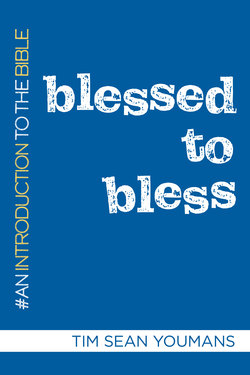Читать книгу Blessed to Bless - Tim Sean Youmans - Страница 27
На сайте Литреса книга снята с продажи.
Оглавление16
Jacob, Esau, and Tribal Leadership
Read Genesis chapters 25, 26, and 27.
After Sarah dies, Abraham married Keturah and has numerous children with her. Toward the end of his life, he gives his entire inheritance to Isaac and gives gifts to his other children and sends them away toward the east. When Abraham dies, Isaac and Ishmael together bury him in the cave at Machpelah with Sarah. Ishmael’s tribe grows through twelve of his princely offspring. This becomes important later as Abraham’s grandson Esau will marry one of Ishmael’s daughters.
Isaac and Rebekah have trouble conceiving, a repeat of Sarah’s difficulty. Isaac pleads with God, and she conceives, but it comes with an unusual prediction. The twins will fight with each other in her womb, and this will be a foreshadowing of the conflict between these two brothers and their offspring. The younger infant will usurp the older one. Do you see the pattern that is forming? Either the story is predicting the tribal conflict, or it is trying to explain it. Which came first, the chicken or the egg? Regardless, usurping will be a repeated theme through much of the Hebrew Bible.
Notice there is a third account of someone lying about their wife being their sister, except this time it is Isaac. This repeats the theme of that undulating up-and-down trust in God’s provision and protection.
Rebekah finally has a baby, but from the beginning it is a contentious event. I love all of the undercurrents of the story of Jacob and Esau. Esau is strong, good at hunting, but anyone who would sell his inheritance and birthright (his position as the tribal head) for a bowl of lentil stew would be a weak leader. It’s the subtext of the story. There was the divine premonition Rebekah had during her pregnancy, “the older will serve the younger.” What ensues is a mother manipulating her son to do something to bring that to fruition.
Moms manipulating their children? That has never happened before!
Jacob steals his brother’s familial blessing by deceiving his blind father Isaac. I wonder if Jacob and Rebekah had simply been patient and let circumstances unfold naturally, would God have arranged the transition to Jacob’s tribal headship more smoothly? Does God use unethical or deceptive methods to achieve a greater good? The story never says one way or the other. It only suggests this was predicted by God while the babies were in the womb, and so it came to fruition.
Esau swears he will kill him in retaliation. Jacob flees and soon becomes associated with his act of betrayal. His name, Jacob, means “grasps the heel” but comes to be associated with usurper and deceiver or a thief and a liar. Jacob will be the tribal head, but his moral authority has been compromised. Is this what God wanted? There is a quote attributed to Napoleon that goes something like: “To obtain power one must be absolutely petty, but to exercise power, one must be absolutely great. Rarely do these two qualities ever coexist within the same person.”
Questions for Reflection or Discussion
1. Who would make a better tribal chieftain, Esau or Jacob? Why?
2. If you were in a situation where you knew you would make a better leader than the one put in charge, would you trust God to make the opportunity for you or would you be more inclined to try and trick and maneuver your way into that position?
